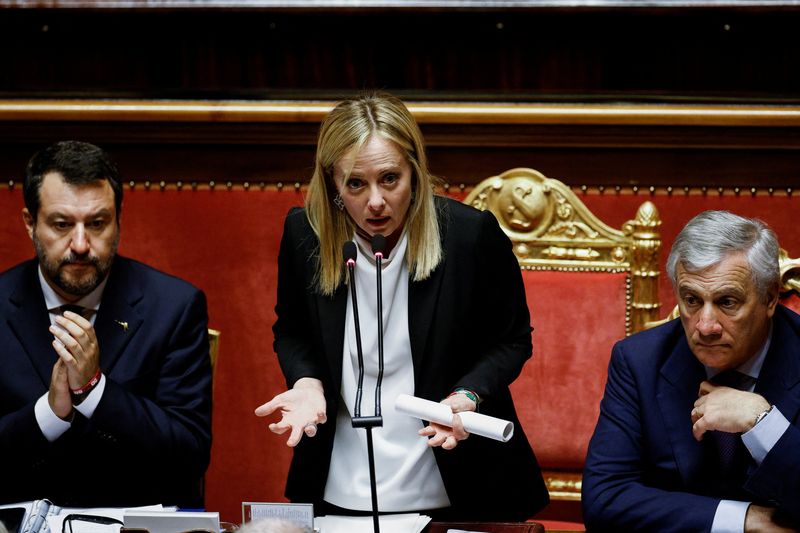ROME (Reuters) – Morale amongst Italian businesses and consumers fell in October, data showed on Thursday, underscoring the challenges facing new Prime Minister Giorgia Meloni who has inherited a rapidly slowing economy.
Consumer sentiment was particularly glum, statistics bureau ISTAT reported, with the index plunging to a nine-year low as the surge in the cost of living erodes household savings.
Meloni, who was sworn in as prime minister on Saturday at the head of a right-wing coalition, faces a welter of problems for the euro zone’s third largest economy which the Treasury says is now in recession.
ISTAT’s consumer morale index dived to 90.1 from 94.8 in September, far short of a median forecast of 93.8 in a Reuters’ poll and posting the lowest level since May 2013.
Intesa Sanpaolo economist Paolo Mameli said Italians’ plans to purchase durable goods were also at their lowest since 2013, while consumers’ assessment of their future ability to put aside savings stood at a seven-year low.
Higher living costs have cut the share of income Italians were able to save between March and August by 78% compared with the first two months of the year, research by online bank N26 showed, a much sharper drop than seen in Germany, France or Spain.
Italian EU-harmonised consumer price inflation was running at 9.4% in September, far outstripping wage increases.
ISTAT’s manufacturing confidence index dropped to 100.4 in October from 101.2 in September, a less steep drop than seen in the consumer survey but still a fourth consecutive decline and the lowest reading since January last year.
The result was slightly above a median forecast of 100.0 in a Reuters survey of 11 analysts.
ISTAT’s composite business morale index, combining surveys of the manufacturing, retail, construction and services sectors, fell to 104.5 in October, compared with September’s reading of 105.1, registering its lowest level since April 2001.
Italian gross domestic product rose a stronger-than-expected 1.1% in the second quarter from the previous three months, but most analysts expect contraction during the rest of the year, as sky-high energy costs hit companies and households.
ISTAT will issue a flash estimate of third quarter GDP on Oct. 31.
(Reporting by Valentina Za and Gavin Jones)
